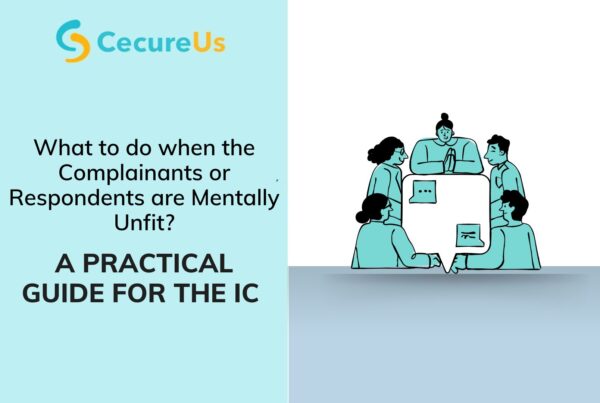
I have spent years helping companies build a strong ethical foundation and this is my observation. In every business’s journey, even in its early stages, the significance of a code of conduct cannot be overstated—it’s the bedrock of a thriving, ethical business environment.
Remember the infamous incident where a passenger was forcefully removed from an overbooked United Airlines flight? This ethical misstep not only led to widespread public outrage but also caused long-lasting damage to the airline’s reputation. Consumers were horrified by the company’s handling of the situation, and many vowed never to fly with United again.
Infosys was also embroiled in an ethical scandal that shook the corporate world. A whistleblower group named “Ethical Employees” accused CEO Salil Parekh of engaging in “unethical practices” to inflate financial numbers. The claims sparked an investigation by Infosys’ audit committee, with serious implications for the company’s governance and reputation.
As business leaders, it is our responsibility to cultivate an ethical culture within our organizations. This begins with drafting a code of conduct that addresses potential ethical dilemmas and provides a framework for decision-making.
What Exactly is a Code of Conduct?
A code of conduct is more than just a document gathering dust on a shelf. It’s a framework that outlines the principles, standards, and expected behaviors of everyone involved in your organization. Think of it as your company’s moral compass, guiding your team towards making ethical decisions and maintaining integrity in every action.
Why Should You Care About a Code of Conduct?
Building a Good Reputation
Reputation is everything. Customers and stakeholders are more likely to trust and do business with companies that demonstrate ethical practices. Companies that uphold high ethical standards tend to gain public trust and respect, which can significantly enhance their brand image.
Attracting and Retaining Talent
Millennials and Gen Z, who are rapidly becoming the backbone of the workforce, value ethics and social responsibility highly. 77% of Millennials consider a company’s culture of purpose (i.e., doing good for the world) when deciding where to work. A strong code of conduct signals to potential employees that your company cares about fairness, inclusion, and doing the right thing, making it a more attractive place to work.
Improving Compliance and Reducing Risk
Regulatory compliance is a major concern for businesses. In India, with laws like the Prevention of Corruption Act and evolving labour laws, staying compliant can be challenging. A code of conduct helps ensure that all employees understand and adhere to these laws, reducing the risk of legal issues and the hefty fines that can accompany them.
Attraction and Retention of Talent
Companies with strong ethical foundations not only attract top talent but also retain them. Employees want to work for organizations they can trust and believe in. A clear code of conduct communicates the company’s commitment to ethical behaviour, creating a sense of security and trust among employees.
Consumer Trust and Loyalty
Consumers today are more informed and selective. They are increasingly choosing brands that align with their values. In fact, 43% of consumers have stopped purchasing from brands they perceive as unethical, and 71% consider corporate values in their buying decisions. This means that ethical business practices are not just good for employee morale but are also vital for maintaining consumer trust and loyalty.
Promoting Ethical Practices
Promoting ethics in business goes beyond avoiding scandals. It involves everyday decisions that shape the company’s culture. For instance, Google faced fines for antitrust issues and had to work diligently to restore consumer trust. Such instances highlight the continuous effort required to uphold ethical standards.
Developing Your Code of Conduct
Creating a code of conduct might seem daunting, but it doesn’t have to be. Here are some steps I believe can help you get you:
- Define Your Values: Identify the core values that your company stands for. This could include integrity, respect, innovation, and community.
- Set Clear Guidelines: Outline what behaviors are expected and what actions are prohibited. Be specific about issues like conflict of interest, harassment, and data privacy.
- Communicate Effectively: Make sure every employee understands the code. This can be achieved through training sessions, regular updates, and accessible documentation.
- Encourage Reporting: Create a safe environment for employees to report unethical behavior. Implement a whistleblower policy that protects and encourages transparency.
- Regularly Review and Update: The business environment is constantly changing, so it’s important to regularly review and update your code of conduct to address new challenges and regulations.
Building Integrity, Driving Success
Building a strong foundation through a code of conduct is essential for business success and longevity. As business leaders, let’s prioritize environments where ethics and values are paramount.
A well-communicated code of conduct embeds ethics into your company’s fabric, creating a positive culture that complies with regulations and attracts both employees and customers. Whether you’re leading a startup or an established corporation, developing and nurturing a comprehensive code of conduct is a crucial investment for a resilient and reputable organization.
Is your organization ethically strong? Watch this video to find out.
Please reach out to us for any queries on Importance of a Code of Conduct.
For more blogs and articles, visit our official website. Contact us for workshops and queries related to POSH, EAP (Employee Assistance Program,) and Diversity and Inclusion.




